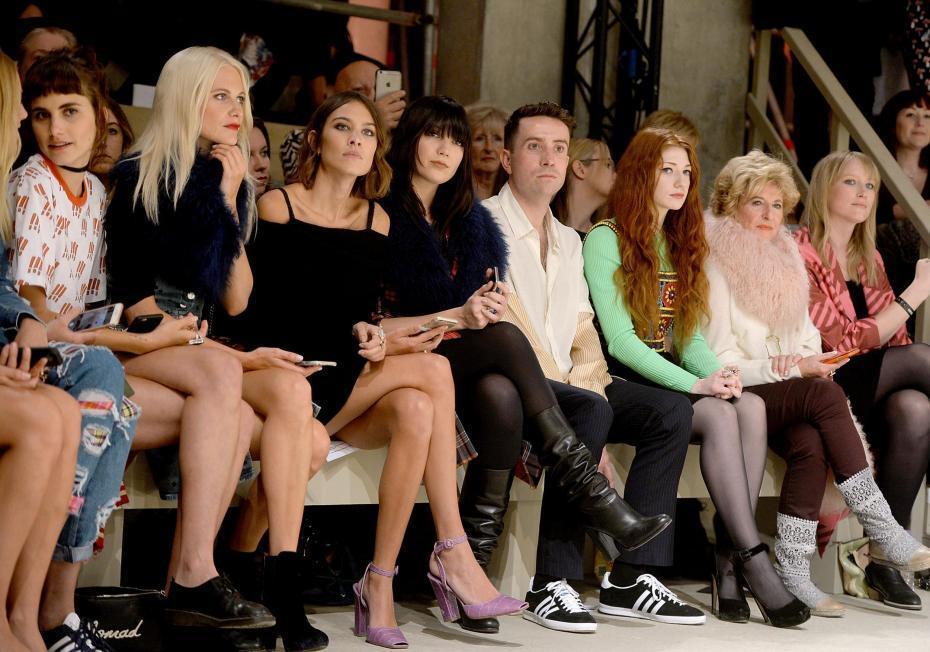Fashion and feminism do not mix – and they never will
For years, fashion heads have spouted platitudes about how much they care for the welfare of our sex. But it’s nonsense; none of them take on board any previous criticism of industry standards. Skinny is in vogue, and no amount of policing will change that

Fashion leaves me cold. Not because I don’t eat anything – like most of its stars, but it seems such a harsh and unwelcoming industry.
I’ve tried to understand it. One day I tuned into The September Issue on Netflix, but couldn’t warm to the grumpy middle-aged woman at the centre of it. “That’s Anna Wintour,” my housemate pointed out. Then I tried Iris, featuring another (older) misery guts, followed by the BBC’s documentary on Vogue, which – aside from sending me to sleep – confirmed that grumpy people are everywhere in this industry.
Frankly, I’m not convinced about what the big appeal is. And I know at fashion’s top end, the pay is incredibly good – as is the creative freedom. But what if you’re stuck at the bottom for years and years?
The people I feel the worst for are the models; many of whom clearly don’t eat very much, though the extent of the problem has never been adequately assessed, as speaking out may be a sort of career suicide.
I suspect months, even years, of suppressing one’s appetite – and working in one of the toughest businesses – must take its toll. No matter how beautiful you are, or the clothes you get wear, the Maslowian in me assumes it’s impossible to be happy without a healthy diet. What models seem to need is an RSPCA of sorts, to make sure they get fed and watered, which the Women’s Equality Party (WEP) has nominated itself to be this body.
In time for London Fashion Week, its representatives have created a #NoSizeFitsAll campaign to get more normal-looking models into fashion. And when I say normal, I mean those who don’t look like Tutankhamun’s remains.

Some of its proposals include making sure designers at London Fashion Week show at least two sample sizes – UK size 12 or above; that magazines include one plus-sized spread per issue, and ensuring schools teach body image classes.
While its intentions are noble, I have doubts about the efficiency of these proposals, which are quite censorious in nature – and centred on a false premise that removing images, alone, can change the way women view their bodies. Instead of controlling which models get exposure, audiences should be taught to see fashion as an aspirational industry. From the bodies, to the hair, to the expensive, impractical clothing, it’s clearly not a sector to base your reality on.
Fundamentally no one can dictate to businesses what constitutes a “normal body”, as definitions remain questionable. BMI and Waist to Hip Ratio are both used to measure health, yet give incredibly crude measurements. An unrealistic body isn’t just just limited to thinness, either; take censorship to its logical conclusion, and there’s any number of things you could get rid of if they deviated from the average person: great hair, an ample bosom, obesity.
What I think is particularly flawed with WEP’s plan is focussing more on body image to make women think less about it. Overall many feminist campaigns seem to think that it’s helpful to hone in on micro issues for girls, whether it’s their appearance or sexual activity. In fact, they’re promoting the same navel gazing culture that limits female ambition.
It would be far better if girls were encouraged to think about the bigger issues, so that they’re not lured by industries that base worth on appearance. Even Cara Delevingne has gone into acting now, having said that the period of her life where she modelled meant she “didn't want to live any more”.
For years, fashion heads have spouted platitudes about how much they care for the welfare of our sex. But it’s nonsense; none of them take on board any previous criticism of industry standards. Skinny is in vogue, and no amount of policing can change that.
Like a pair of size six jeans, fashion is clearly something you have to fit into – not something that fits around you. Instead of trying to stretch the industry to its limits, women should simply accept that, like a pair of size six jeans, it’s possible to be comfier elsewhere! The best thing WEP, and other feminists can do, is urge others to set their sights on other careers – where their value, and brains, would be much better considered. That is not, and will never be, on the catwalk.
Join our commenting forum
Join thought-provoking conversations, follow other Independent readers and see their replies
Comments
Bookmark popover
Removed from bookmarks